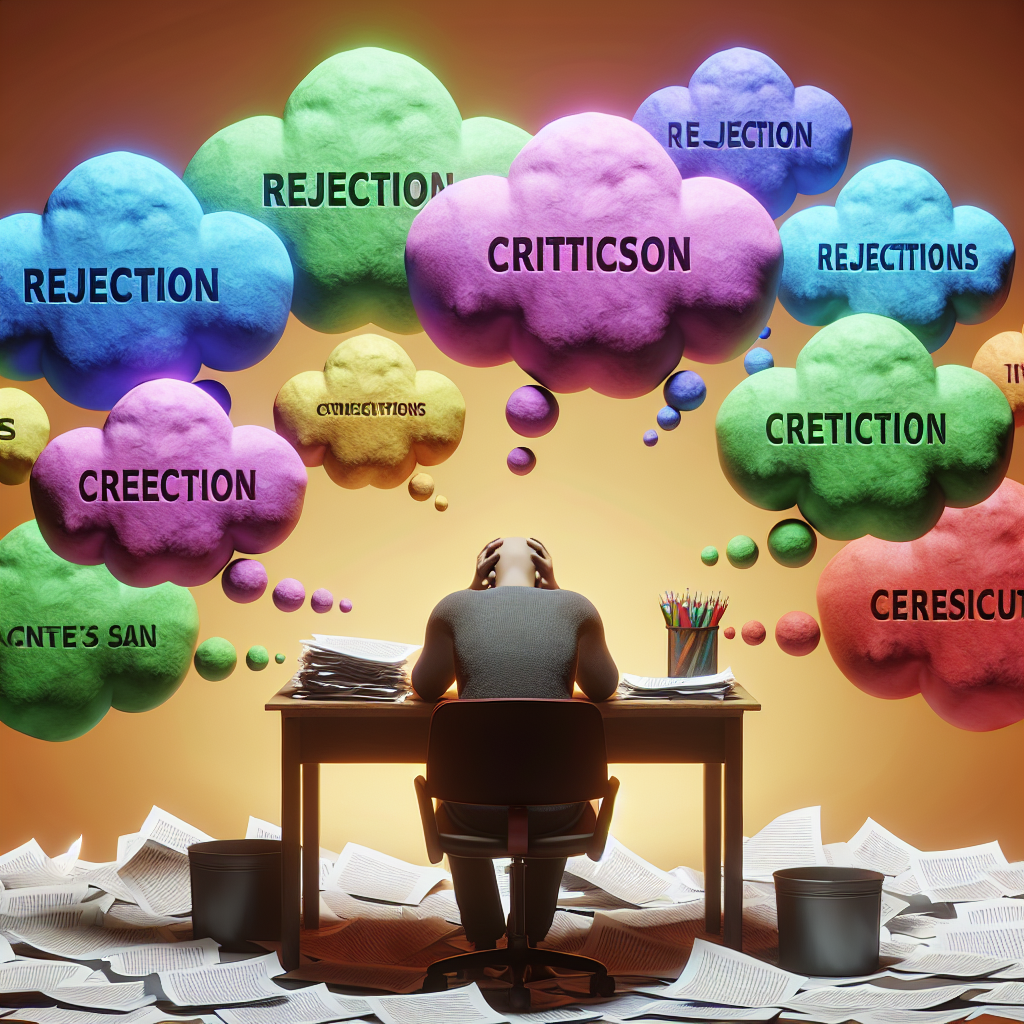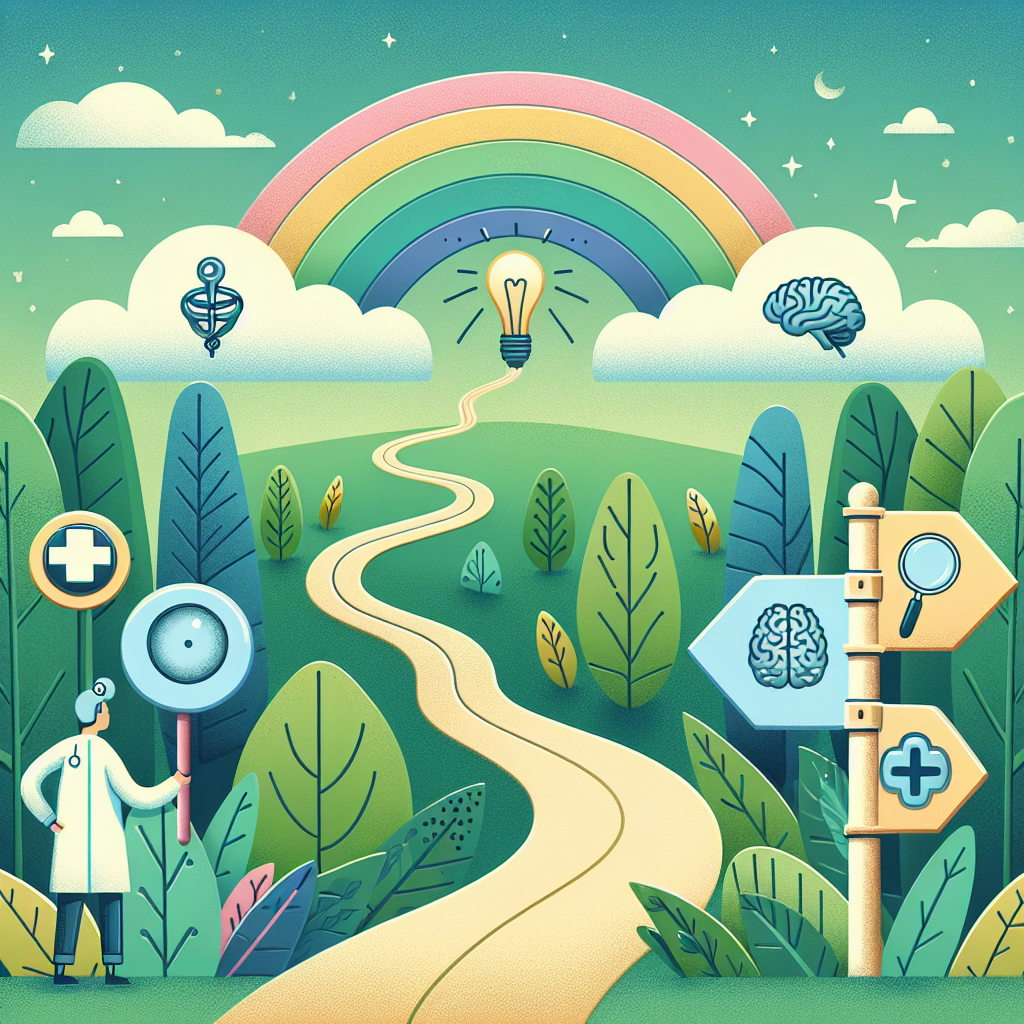
Understanding RSD: When ADHD Makes Rejection Feel Unbearable
Introduction
Welcome to the rollercoaster ride that is rejection sensitive dysphoria (RSD)! If you have ADHD, you might feel like you’re on a never-ending emotional seesaw, where the slightest hint of rejection sends you plummeting to the ground. But don’t worry, you’re not alone! Understanding RSD is crucial for anyone navigating the choppy waters of ADHD and emotions.
Imagine this: You just sent a text to a friend and they read it but didn’t respond. Your mind races with thoughts like, “Did I say something wrong?” or “They must hate me now!” This hyper-awareness of potential rejection is what makes RSD so challenging. It’s like having a built-in alarm system that goes off at the faintest whiff of disapproval or critique.
But why does this happen? Well, it turns out that emotional dysregulation in ADHD can amplify feelings of rejection, leading to intense emotional responses that can feel unbearable. In fact, many people with ADHD struggle with managing their emotions, making them more susceptible to RSD symptoms. It’s a tricky combination that can severely impact self-esteem and overall mental health.
In this blog post, we’ll dive deep into what RSD really means, how it connects to ADHD, and most importantly, how you can manage those overwhelming feelings when they arise. So buckle up as we explore strategies for dealing with rejection sensitivity in ADHD and learn how to build emotional resilience!

What is Rejection Sensitive Dysphoria (RSD)?
Rejection Sensitive Dysphoria (RSD) is like that overly dramatic friend who feels every slight and criticism as if it were a personal attack. It’s an intense emotional reaction to perceived rejection or failure, often experienced by individuals with ADHD. Imagine getting a simple “meh” response to your brilliant idea and feeling like you’ve just been dumped on national television. Ouch!
This heightened sensitivity isn’t just about hurt feelings; it can lead to significant emotional dysregulation in ADHD individuals. In fact, RSD can manifest as extreme anxiety, depression, or even anger when faced with criticism or social rejection. It’s like having your emotions on a rollercoaster that you didn’t even want to ride!
- Definition of RSD: It’s an emotional condition where the fear of rejection leads to overwhelming feelings of sadness, anger, or frustration.
- Connection between RSD and ADHD: Research shows that RSD is particularly prevalent among those with ADHD due to their inherent emotional sensitivity and challenges in emotional regulation.
Did you know? Studies suggest that up to 99% of adults with ADHD may experience some form of rejection sensitivity!
Understanding rejection sensitive dysphoria is crucial for anyone navigating the choppy waters of ADHD and emotions. By recognizing this condition, individuals can begin to develop strategies for managing their reactions and improving their overall mental health.
The Role of Rejection Sensitivity in ADHD
When we think about rejection sensitivity, it’s like imagining a balloon that’s just waiting for the slightest prick to burst. For individuals with ADHD, this balloon is inflated by emotional dysregulation, making the experience of rejection feel monumental. Let’s dive into how this intricate dance between rejection sensitivity and ADHD plays out.
Understanding Rejection Sensitivity
Rejection sensitivity is more than just feeling a little hurt when someone doesn’t invite you to a party. It’s an intense emotional response that can leave individuals feeling as though they’ve been hit by a freight train. This heightened sensitivity often leads to overreactions to perceived slights or criticisms, which can be particularly challenging for those with ADHD.
Emotional Dysregulation in ADHD
Now, let’s throw emotional dysregulation into the mix. For many with ADHD, managing emotions can feel like trying to tame a wild beast. The typical ups and downs of life can escalate into overwhelming feelings of despair when rejection occurs. It’s as if each negative experience is amplified through a megaphone, leaving individuals grappling with intense feelings of inadequacy and shame.
Key Takeaway: In people with ADHD, rejection sensitivity can lead to significant emotional challenges, making it crucial to understand the psychological impact of RSD on their lives.
The Cycle of RSD and Self-Esteem Issues
This cycle often results in self-esteem issues that can be hard to break. Imagine trying to build a sandcastle at the beach only for the waves (a.k.a. rejections) to wash it away repeatedly. Each wave erodes not just the castle but also confidence levels, leading to a reluctance to engage socially or professionally due to fear of further rejection.
Common Misconceptions about RSD in ADHD
- Myth: RSD only affects children with ADHD.
- Fact: Adults with ADHD also experience significant RSD symptoms that impact their daily lives.
- Myth: Rejection sensitivity is just being overly sensitive.
- Fact: It’s a real psychological condition tied closely to emotional regulation issues inherent in ADHD.
Coping with rejection sensitive dysphoria (RSD) requires understanding these complex emotions and learning effective strategies for managing them. By recognizing how deeply rejection impacts your emotional landscape, you can begin working towards healthier coping mechanisms and improved self-esteem.

Symptoms of RSD in Adults with ADHD
Rejection Sensitive Dysphoria (RSD) can feel like a roller coaster ride that never ends, especially for adults with ADHD. The emotional highs and lows can be overwhelming, and the symptoms can manifest in various ways. Let’s break down some common symptoms of RSD and see how they play out in daily life.
Common Symptoms of RSD
- Intense Emotional Reactions: Adults with RSD often experience extreme emotional responses to perceived rejection or criticism. This could range from sadness to outright rage.
- Physical Symptoms: Some individuals may experience physical manifestations such as headaches, stomachaches, or even panic attacks when faced with rejection.
- Avoidance Behavior: To dodge the sting of potential rejection, many might withdraw from social situations or avoid taking risks altogether.
- Low Self-Esteem: Chronic feelings of inadequacy can arise, leading to a negative self-image that feeds into the cycle of rejection sensitivity.
How RSD Manifests in Daily Life
The impact of RSD on daily life is substantial. Picture this: you’re in a meeting at work, and someone critiques your idea. For most people, this might sting a little, but for those dealing with rejection sensitive dysphoria adhd, it can feel like a personal attack. Here are some scenarios where RSD symptoms might rear their ugly heads:
- Workplace Challenges: Regular feedback sessions can turn into emotional battlegrounds. The fear of criticism may lead to procrastination or avoidance of tasks that require collaboration.
- Social Interactions: Friends’ jokes or teasing can be taken too personally. What was meant as playful banter might hit harder than expected.
- Romantic Relationships: A missed text or an unreturned call could spiral into feelings of worthlessness and anxiety about the relationship’s viability.
The Psychological Impact of RSD on ADHD Patients
Rejection Sensitive Dysphoria (RSD) can feel like a heavy backpack filled with bricks for those with ADHD. Each brick represents a moment of perceived rejection, criticism, or failure, weighing down self-esteem and confidence. This emotional burden isn’t just uncomfortable; it can significantly impact mental health and overall well-being.
Effects on Self-Esteem and Confidence
For individuals grappling with rejection sensitive dysphoria ADHD, the sting of rejection can lead to a downward spiral in self-esteem. Imagine walking into a room full of people and feeling like everyone is judging you even when they’re not! This constant fear can foster feelings of inadequacy and self-doubt, making it hard to pursue opportunities or form new relationships.
The Correlation Between RSD and Anxiety
The psychological impact doesn’t stop at self-esteem. RSD often intertwines with anxiety, creating a cocktail of emotional distress that can feel overwhelming. Think of it like having an internal alarm system that’s always on high alert. Even minor criticisms or perceived slights can trigger intense anxiety responses, leading to avoidance behaviors that further isolate the individual.
RSD and Depression in ADHD Individuals
The emotional toll of living with RSD can also pave the way for depression. When rejection feels like a personal attack rather than a normal part of life, it’s easy to slip into despair. The cycle can be vicious: feeling rejected leads to withdrawal from social situations, which in turn leads to loneliness and more feelings of rejection. It’s like being stuck in an emotional hamster wheel!
Key Takeaway: Understanding the psychological impact of RSD is crucial for those with ADHD. By recognizing how rejection sensitivity affects emotions, individuals can begin to address their mental health challenges proactively.
Common Misconceptions About RSD
A common misconception is that people with RSD are simply “overreacting” or “too sensitive.” However, this overlooks the genuine pain and distress caused by their heightened emotional sensitivity. It’s important to understand that these reactions are not merely dramatic; they stem from real psychological struggles linked to ADHD.
Strategies for Managing Emotional Distress
- Acknowledge Your Feelings: Recognizing your emotional responses as valid is the first step toward managing them.
- Cognitive Behavioral Techniques: Challenge negative thoughts about yourself when faced with rejection.
- Seek Support: Connecting with others who understand your struggles can provide relief and perspective.
- Meditation and Mindfulness: These practices can help ground you during moments of emotional upheaval.

Coping Strategies for Managing Rejection Sensitive Dysphoria
Living with rejection sensitive dysphoria (RSD) as part of your ADHD experience can feel like navigating a minefield dressed in clown shoes. Each step could trigger an emotional explosion, but fear not! There are effective strategies to help you manage those pesky feelings of rejection and build emotional resilience.
Coping Techniques for Dealing with Rejection Sensitivity
- Reframe Your Thoughts: When faced with perceived rejection, try to shift your perspective. Instead of thinking, “They don’t like me,” consider, “This is just one person’s opinion.” This mental gymnastics can help reduce the sting of rejection.
- Practice Self-Compassion: Treat yourself like you would a friend. When those RSD symptoms kick in, remind yourself that everyone faces rejection at some point. You’re not alone in this!
- Limit Exposure to Triggers: Identify situations that heighten your rejection sensitivity and try to minimize them. For example, if social media is a trigger, consider taking a break or curating your feed.
Emotional Regulation Techniques for ADHD Sufferers with RSD
- Meditation and Mindfulness: These practices can help ground you during moments of high emotional distress. Just a few minutes of focused breathing can work wonders!
- Physical Activity: Engaging in regular exercise releases endorphins, which are natural mood lifters. Think of it as giving your brain a little happy boost!
- Cognitive-Behavioral Strategies: Challenge negative thoughts by writing them down and countering them with positive affirmations. It’s like having a mini therapy session right in your notebook.
Improving Emotional Resilience in People with RSD and ADHD
- Build Supportive Relationships: Surround yourself with people who understand your struggles those who lift you up instead of bringing you down.
- Pursue Interests and Hobbies: Engaging in activities you love can boost your self-esteem and distract from negative thoughts about rejection.
- Acknowledge Progress: Celebrate small victories! Every time you manage to cope effectively with RSD symptoms, take note of it. This builds confidence over time.
Therapy Options for Addressing RSD in Adults with ADHD
When it comes to tackling rejection sensitive dysphoria (RSD) in adults with ADHD, therapy can be a game changer. Think of it as your emotional toolbox, filled with strategies to help you navigate the choppy waters of rejection sensitivity. Here are some of the most effective therapy options:
-
Cognitive-Behavioral Therapy (CBT) Approaches for RSD
CBT is like a mental gym where you can flex those cognitive muscles! This therapy focuses on identifying and challenging negative thought patterns that contribute to emotional dysregulation in ADHD. By reframing how you perceive rejection and learning to manage your emotional responses, you can significantly reduce RSD symptoms.
-
Mental Health Support Specific to ADHD and RSD Treatment Strategies
Finding a therapist who understands both ADHD and RSD is crucial. They can tailor treatment strategies that address the unique emotional challenges faced by individuals with ADHD. This might include integrating mindfulness practices or developing personalized coping mechanisms for dealing with criticism and rejection.
-
The Role of Therapy in Overcoming Rejection Sensitive Dysphoria
Therapy isn’t just about talking things out; it’s about building resilience! Regular sessions can help you explore the psychological impact of RSD on your self-esteem and relationships. With consistent support, individuals often find they are better equipped to handle rejection, leading to improved mental health outcomes.
Key Takeaway: Therapy tailored for ADHD and RSD can provide essential tools for managing emotions effectively, helping you build a healthier relationship with rejection.

Living with Rejection Sensitive Dysphoria and ADHD: Personal Experiences and Insights
Living with rejection sensitive dysphoria (RSD) and ADHD can feel like being on an emotional rollercoaster one minute you’re soaring high, and the next, a tiny bump sends you plummeting into despair. For many of us, everyday interactions can trigger intense feelings of rejection that seem disproportionate to the situation. It’s like having a super-sensitive alarm system that goes off at the slightest hint of criticism or perceived disapproval.
Imagine this: you send a casual text to a friend and they don’t respond right away. Your mind races, conjuring up scenarios where they might be mad at you or simply don’t want to hang out anymore. This is classic RSD in action an emotional dysregulation in ADHD that amplifies feelings of rejection, often leading to anxiety or even depression.
Personal Experiences: The Daily Struggle
Many individuals with ADHD report experiencing extreme emotional sensitivity that colors their interactions. I remember a time when I received constructive feedback at work. Instead of viewing it as an opportunity for growth, my brain twisted it into a personal attack. My heart raced, my palms got sweaty, and I felt like I was spiraling into an abyss of self-doubt.
This isn’t just my story; countless others share similar experiences. In fact, studies suggest that up to 90% of adults with ADHD may experience some form of RSD symptoms. The psychological impact can be profound, affecting not just self-esteem but also relationships and job performance.
Coping Mechanisms: Finding Your Balance
So how do we cope with this emotional whirlwind? Here are some strategies that have worked for me:
- Acknowledge Your Feelings: Recognizing that your feelings are valid is the first step in managing them. Allow yourself to feel without judgment.
- Practice Mindfulness: Techniques like meditation or deep-breathing exercises can help ground you when emotions run high.
- Seek Support: Connecting with others who understand RSD can provide comfort and validation. Consider joining support groups or online forums.
- Cognitive Restructuring: Challenge negative thoughts by asking if they are based on evidence or just fear. This helps reframe your perspective on rejection.
The Role of Therapy
If you’re feeling overwhelmed by RSD symptoms, therapy can be a game-changer. Cognitive-behavioral therapy (CBT) has shown promise in helping individuals navigate their emotions associated with rejection sensitivity. A therapist trained in ADHD-related challenges can equip you with tools tailored specifically for your needs.
The bottom line? Living with rejection sensitive dysphoria and ADHD is undoubtedly challenging, but understanding your emotions and developing effective coping strategies can pave the way toward greater emotional resilience. Embrace your sensitivity as part of your unique journey!
Conclusion: Embracing Emotional Sensitivity as Part of the ADHD Journey
As we wrap up our exploration of rejection sensitive dysphoria (RSD) in ADHD, it’s important to recognize that emotional sensitivity is not a flaw, but rather a unique aspect of the ADHD journey. For many, understanding this can be like finding a secret map to navigate through the stormy seas of emotions.
Think of RSD as a double-edged sword. On one side, it can lead to overwhelming feelings of rejection and emotional distress; on the other, it can enhance creativity and empathy. This emotional rollercoaster is part of what makes individuals with ADHD so vibrant and relatable. However, embracing this sensitivity means acknowledging its impact on self-esteem and interpersonal relationships.
So how do we embrace this emotional landscape? Here are some practical strategies:
- Practice Self-Compassion: Give yourself permission to feel all the feels without judgment. Remember, your emotions are valid!
- Communicate Openly: Share your experiences with trusted friends or family members. This transparency can foster understanding and support.
- Set Boundaries: Protect your emotional space by setting clear boundaries with those who may inadvertently trigger feelings of rejection.
- Cognitive Behavioral Techniques: Use CBT methods to challenge negative thought patterns that arise from RSD.
- Pursue Therapy Options: Engage with mental health professionals who specialize in ADHD and RSD treatment strategies for tailored support.
The journey through rejection sensitive dysphoria can be challenging, but remember that you’re not alone. Many others are navigating these waters alongside you. By embracing your emotional sensitivity as part of your unique identity, you can cultivate resilience and improve your overall quality of life.


